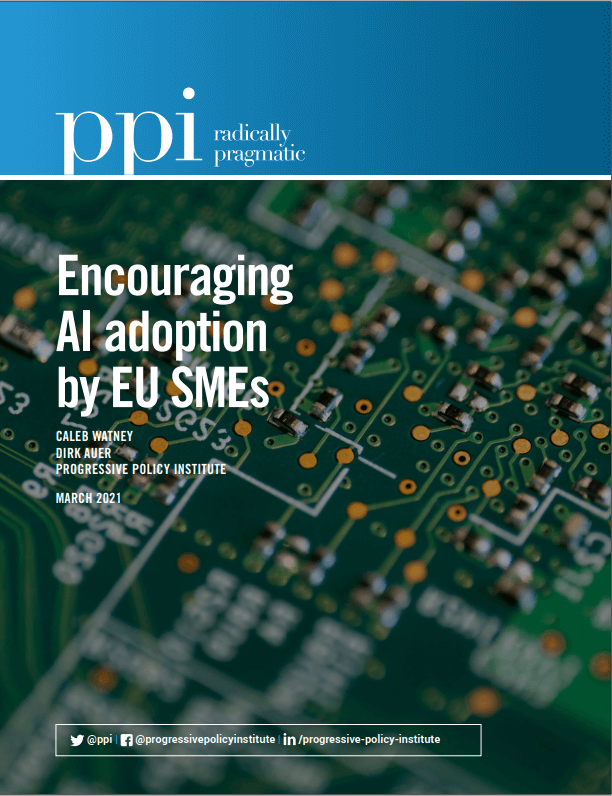Policymakers have naturally been attracted to this topic as SMEs represent the backbone of the European economy, making up 99% of all businesses. And an AI-enabled productivity boost would be particularly timely as SMEs are recovering from the effects of the ongoing Covid-19 crisis.
At the same time, the EU has articulated a desire to be on the forefront of developing novel AI regulations. The EU is contemplating new regulations on the development and deployment of AI that seek to address dual priorities2: How can the EU simultaneously increase the uptake of AI by European firms while shaping the regulatory environment to protect European consumers from harm?
And while the EU’s ambition is laudable, the Commission’s pronouncements have so far failed to grapple meaningfully with the significant tradeoffs that the regulation of new technologies entails. As is the case with all new technologies, the adoption of AI systems — i.e., the broad suite of technologies that are designed to automate or augment aspects of human decision making — involves a tradeoff between risk-mitigation and rapid adoption. Unless carefully managed, the effort to protect consumers from potential risks places additional burdens on firms, which can chill investment and adoption, especially among SMEs. Policymakers thus need to achieve a balance between these two objectives.
With this in mind, our report outlines various policy considerations that should enable policymakers to achieve this balance between the two goals and embody the principle of Thinking Small First3 — the idea that public policy should consider the potential impacts on SMEs from the ground up. The report discusses the promise for AI systems to increase productivity among EU SMEs, the current barriers to AI uptake, and policy tools that may be useful in managing the risks of AI while maximizing the benefits.
Read the report here.
